Introduction:
Biotechnology
is a field of science that involves the application of biological processes and
organisms to develop and improve products and services that benefit society.
Biotechnology encompasses a wide range of disciplines, including molecular
biology, genetics, microbiology, biochemistry, and engineering.
The
field of biotechnology has been rapidly growing and evolving over the past few
decades, with new breakthroughs and discoveries being made on a regular basis.
Some of the most significant advancements in biotechnology have been in the
areas of medicine, agriculture, and environmental science.
Role of Biotechnology:
· In Medicine:
In
medicine, biotechnology has played a critical role in the development of new
treatments and therapies for a variety of diseases and conditions. One of the
most notable achievements of biotechnology in medicine has been the development
of genetically engineered drugs, also known as biologics.
Biologics
are drugs that are made from living organisms, such as bacteria or yeast, and
are used to treat a variety of diseases, including cancer, autoimmune
disorders, and infectious diseases. These drugs are highly effective and have
revolutionized the treatment of many previously untreatable conditions.
· In the Development of Gene Therapy:
In
addition to biologics, biotechnology has also been instrumental in the
development of gene therapy, which involves the use of genetic material to
treat or cure diseases. Gene therapy has shown promise in treating a variety of
conditions, including genetic disorders, cancer, and HIV/AIDS.
· In Diagnostics:
Another
area of medicine where biotechnology has had a significant impact is in the
field of diagnostics. Biotechnology has enabled the development of highly
sensitive and specific diagnostic tests for a variety of diseases, including
infectious diseases, cancer, and genetic disorders.
· In Agriculture:
In
agriculture, biotechnology has played a critical role in the development of
genetically modified crops, or GMOs. GMOs are crops that have been genetically
engineered to produce desired traits, such as resistance to pests or tolerance
to herbicides.
· In the field of Environmental Science:
Finally,
biotechnology has also played an important role in the field of environmental
science. Biotechnology has enabled the development of new techniques for
environmental remediation, such as bioremediation.
Bioremediation
involves the use of microorganisms to break down and remove pollutants from the
environment, such as oil spills and industrial waste. Biotechnology has also
been used to develop new methods for monitoring and assessing environmental
risks, such as the use of biosensors to detect pollutants in water and soil.
GMOs:
GMOs
have been controversial, with some people concerned about their safety and
potential impact on the environment. However, many experts argue that GMOs have
the potential to increase crop yields and reduce the use of pesticides and
other harmful chemicals in agriculture.
In
addition to GMOs, biotechnology has also been instrumental in the development
of new techniques for plant breeding, such as marker-assisted selection and
genetic engineering. These techniques have the potential to increase the
efficiency and precision of plant breeding, leading to crops that are more
productive and resilient.
Benefits of Biotechnology:
Despite
the many benefits of biotechnology, the field has also raised a number of
ethical and social concerns. Some people are concerned about the safety of
genetically engineered organisms, and worry about the potential for unintended
consequences.
Impact on Traditional Agricultural Practices:
There
are also concerns about the potential impact of biotechnology on traditional
agricultural practices, and the potential for biotechnology to exacerbate
social and economic inequalities.
To
address these concerns, it is important for the biotechnology industry to
engage in transparent and responsible practices, and for policymakers to
develop regulations that ensure the safety and ethical use of biotechnology.
Synthetic Biology:
One
of the most exciting areas of biotechnology is synthetic biology. Synthetic
biology involves the design and construction of new biological systems and
organisms using engineering principles.
By
applying engineering principles to biology, synthetic biologists are able to
create new biological systems that can perform specific functions, such as
producing biofuels, detecting environmental pollutants, or even synthesizing
new drugs.
Personalized Medicine:
Another
promising area of biotechnology is personalized medicine. Personalized medicine
involves the use of genetic information to tailor medical treatments and
therapies to individual patients.
Identification of Genetic Variations:
By
analyzing a patient's genetic information, doctors can identify genetic
variations that may impact their response to different treatments, and develop
personalized treatment plans that are more effective and have fewer side
effects.
In Development of Agriculture:
In
addition to personalized medicine, biotechnology has also played a critical
role in the development of precision agriculture. Precision agriculture
involves the use of data and technology to optimize agricultural practices and
improve crop yields.
By
collecting and analyzing data on soil moisture, nutrient levels, and weather
patterns, farmers can make more informed decisions about when to plant and
harvest crops, and how much water and fertilizer to use.
Development of Renewable Energy Sources:
Finally,
biotechnology has also been instrumental in the development of renewable energy
sources, such as biofuels. Biofuels are fuels that are made from organic
matter, such as plant material or algae.
Overall,
biotechnology has the potential to revolutionize many areas of science and
technology, and to contribute to the development of a more sustainable and
equitable world. With responsible and ethical practices, biotechnology can
continue to drive innovation and improve our lives for years to come.
Conclusion:
In
conclusion, biotechnology is a dynamic field that has the potential to
revolutionize various industries and contribute to solving some of the world's
most pressing problems. From the development of new medicines and vaccines to
the production of genetically modified crops, biotechnology has already had a
significant impact on our lives. However, as with any technology, there are
ethical, safety, and regulatory considerations that must be taken into account.
It is essential that we continue to approach biotechnology with caution,
responsibility, and a commitment to balancing its potential benefits with any
potential risks. By doing so, we can ensure that biotechnology continues to
drive innovation and progress in a way that benefits society as a whole.









0 Comments